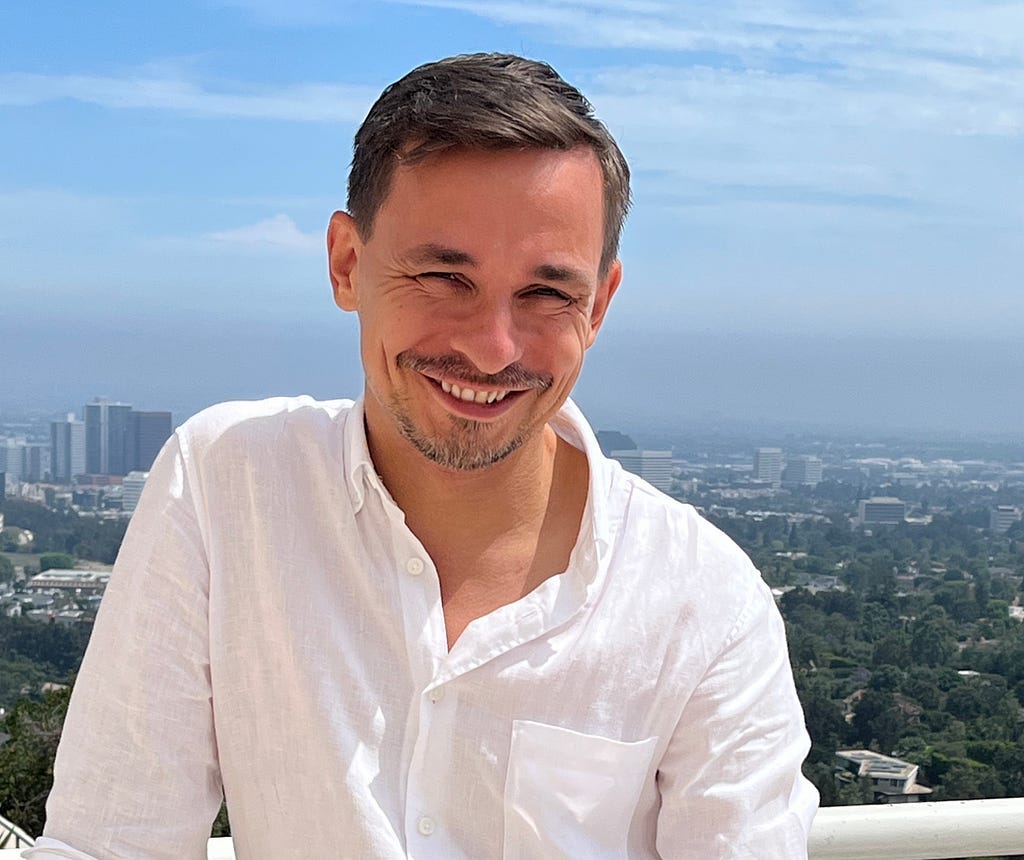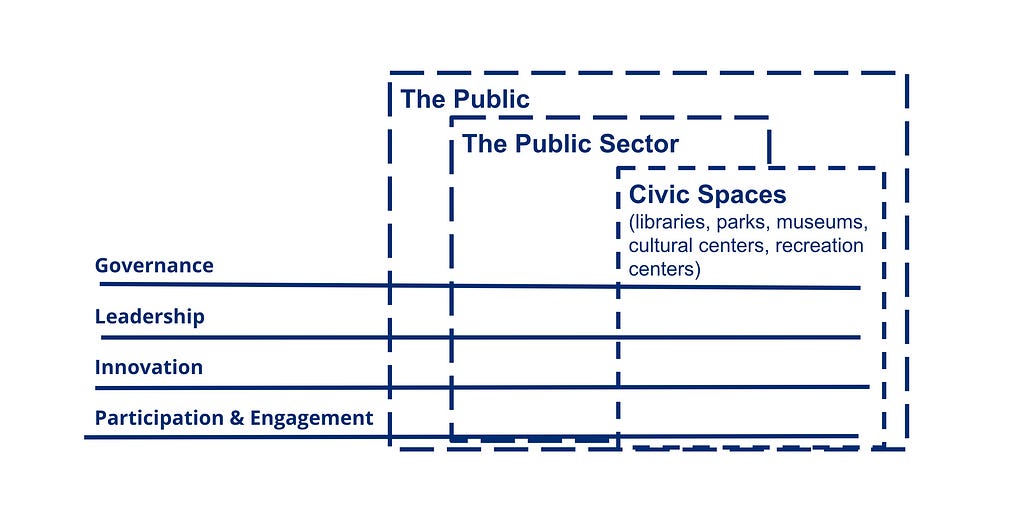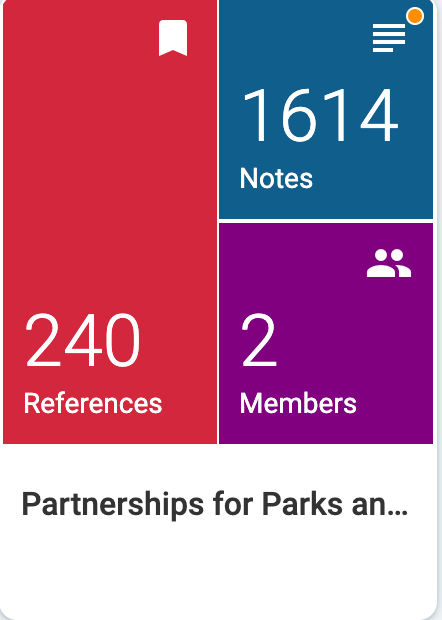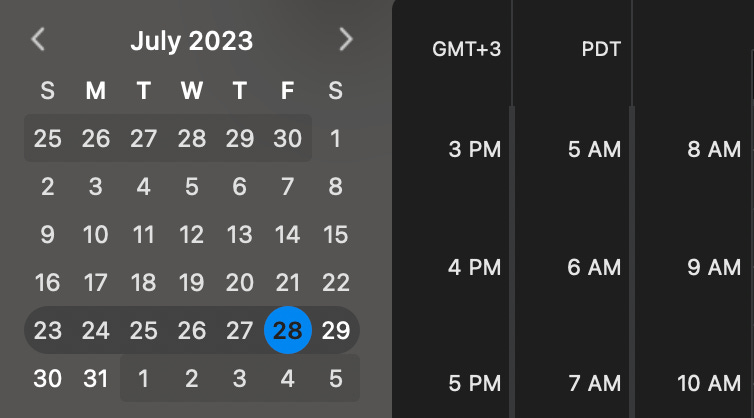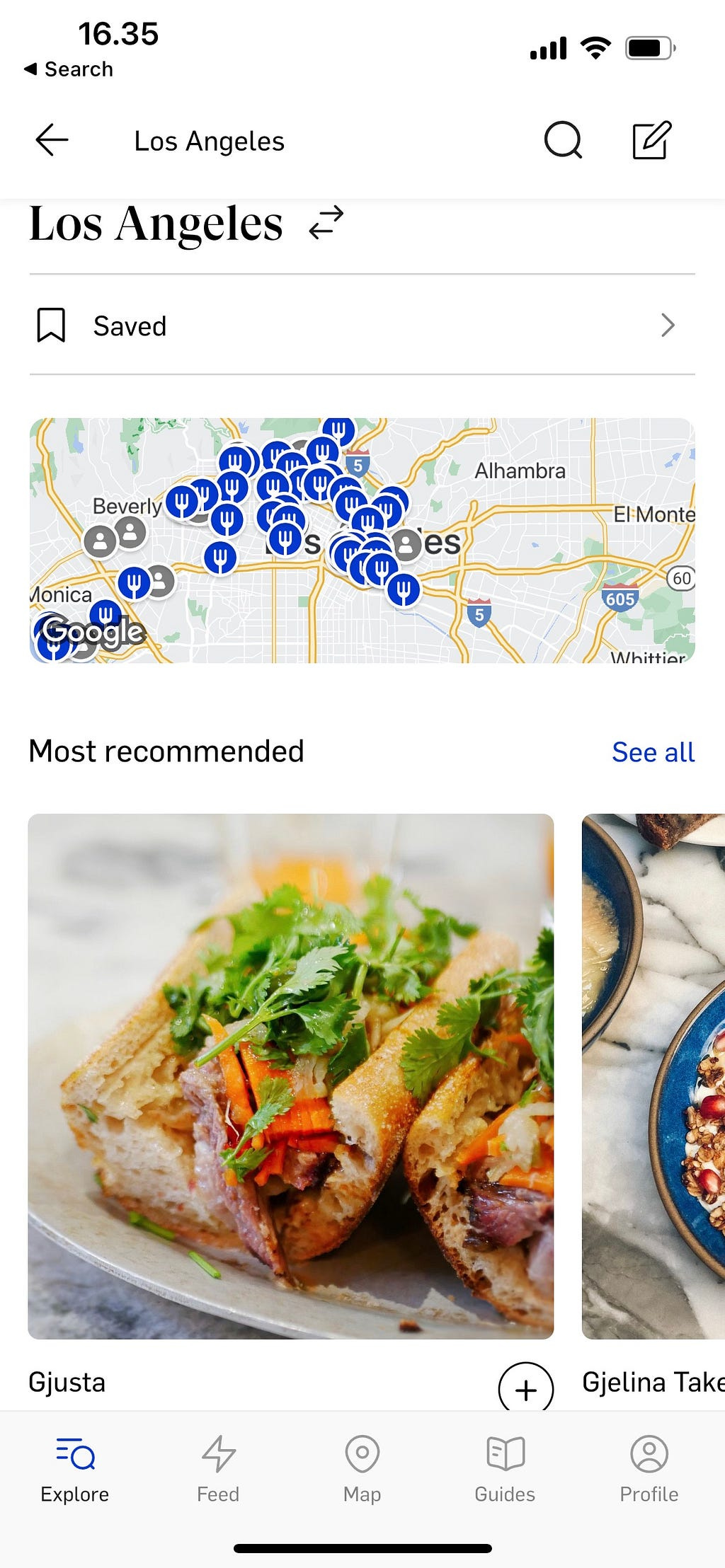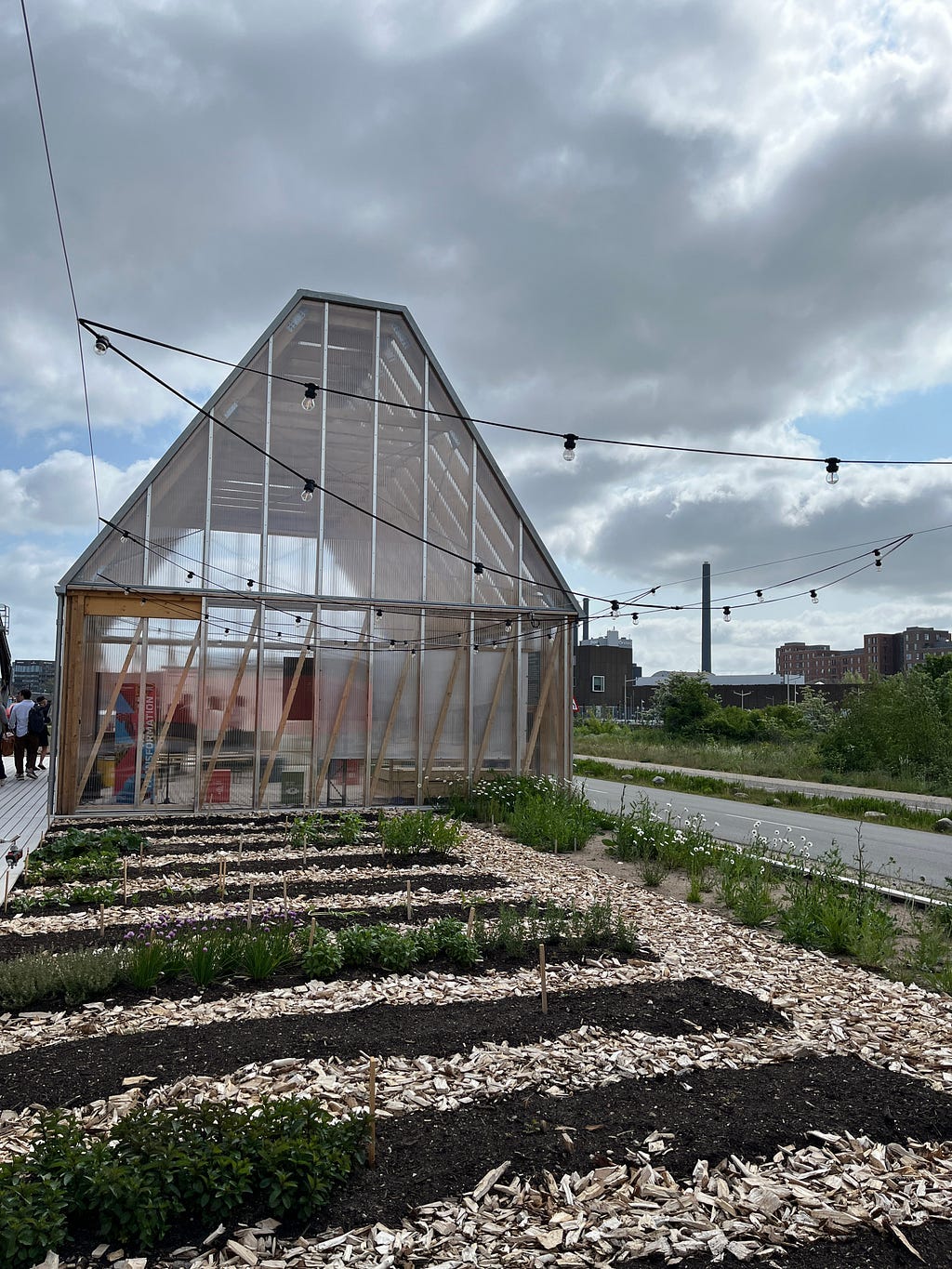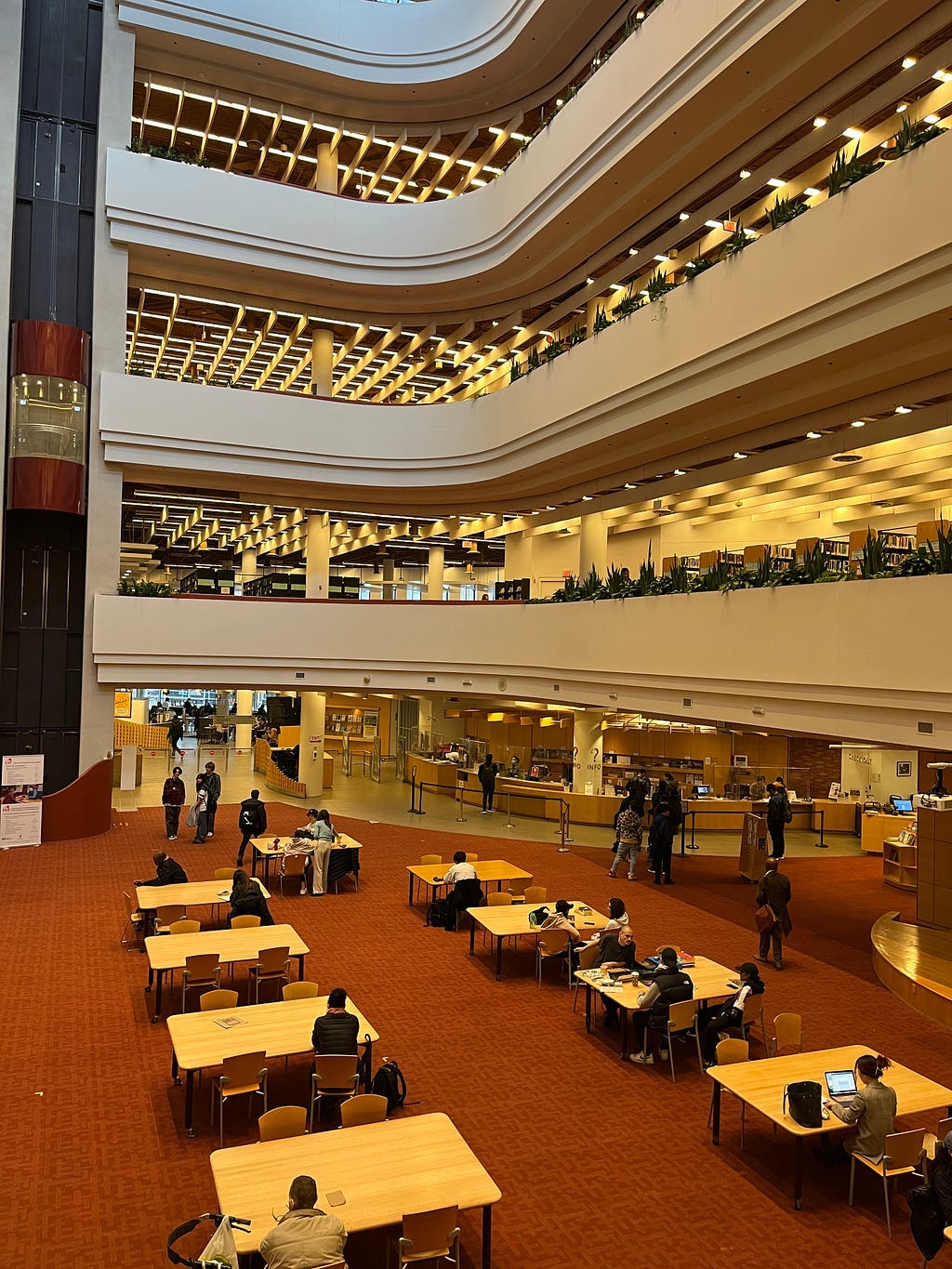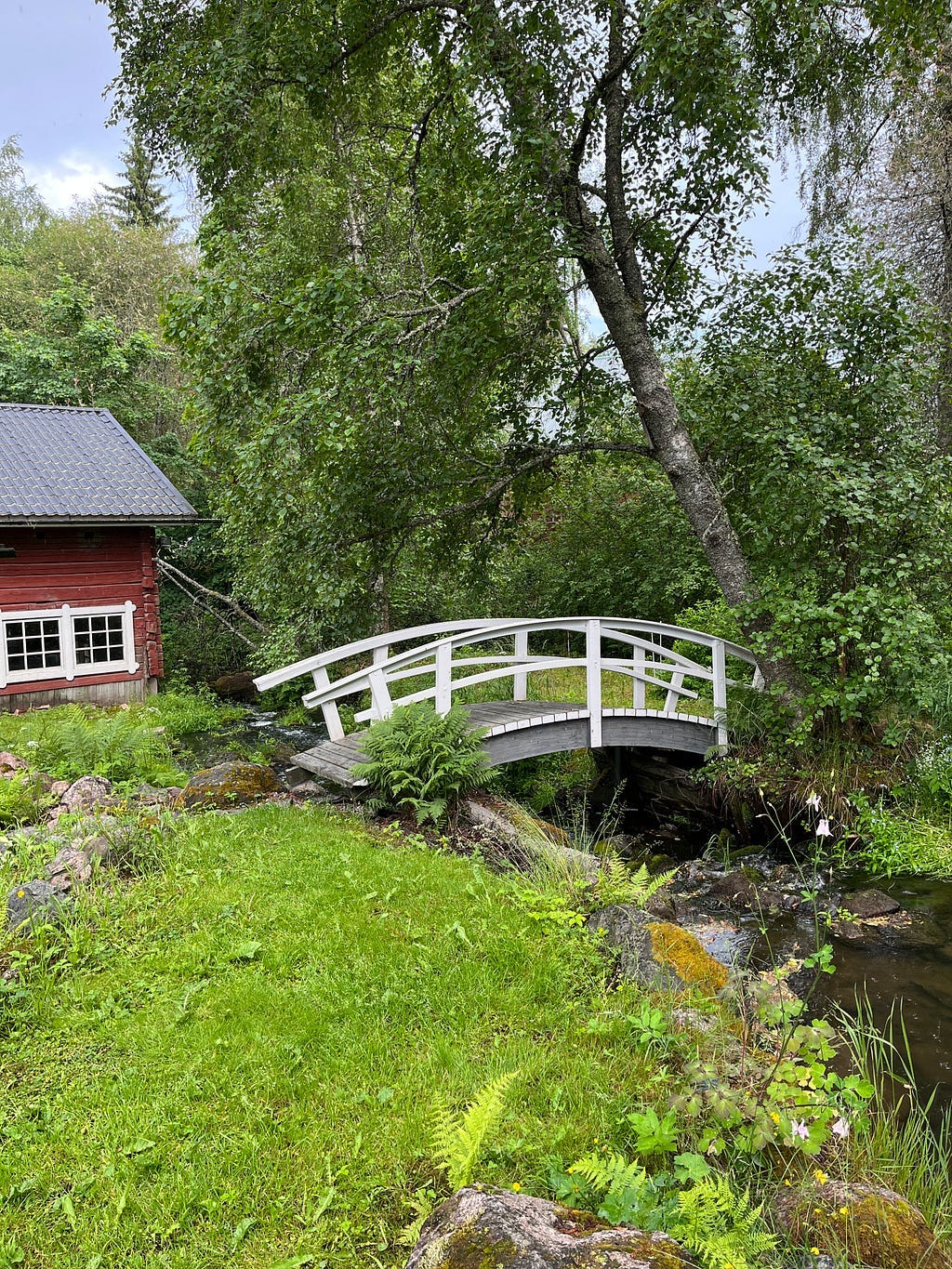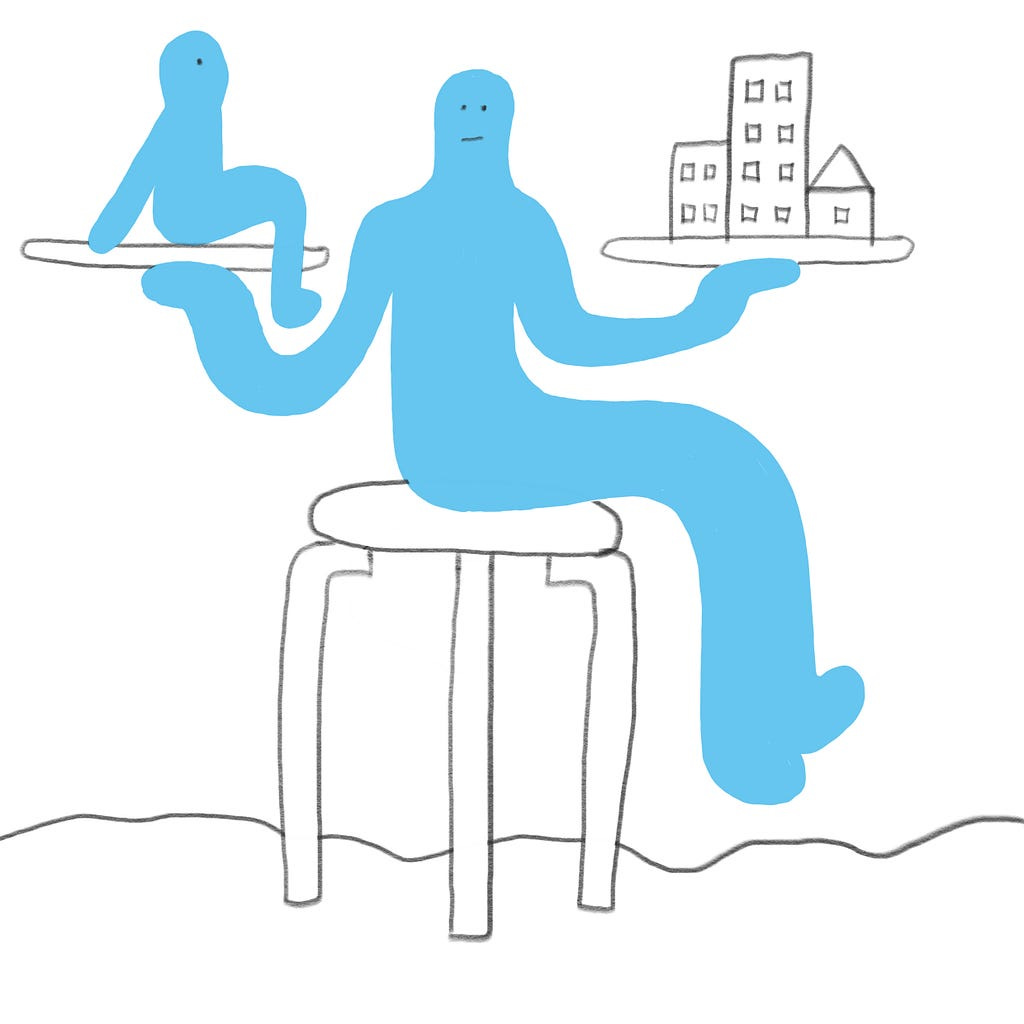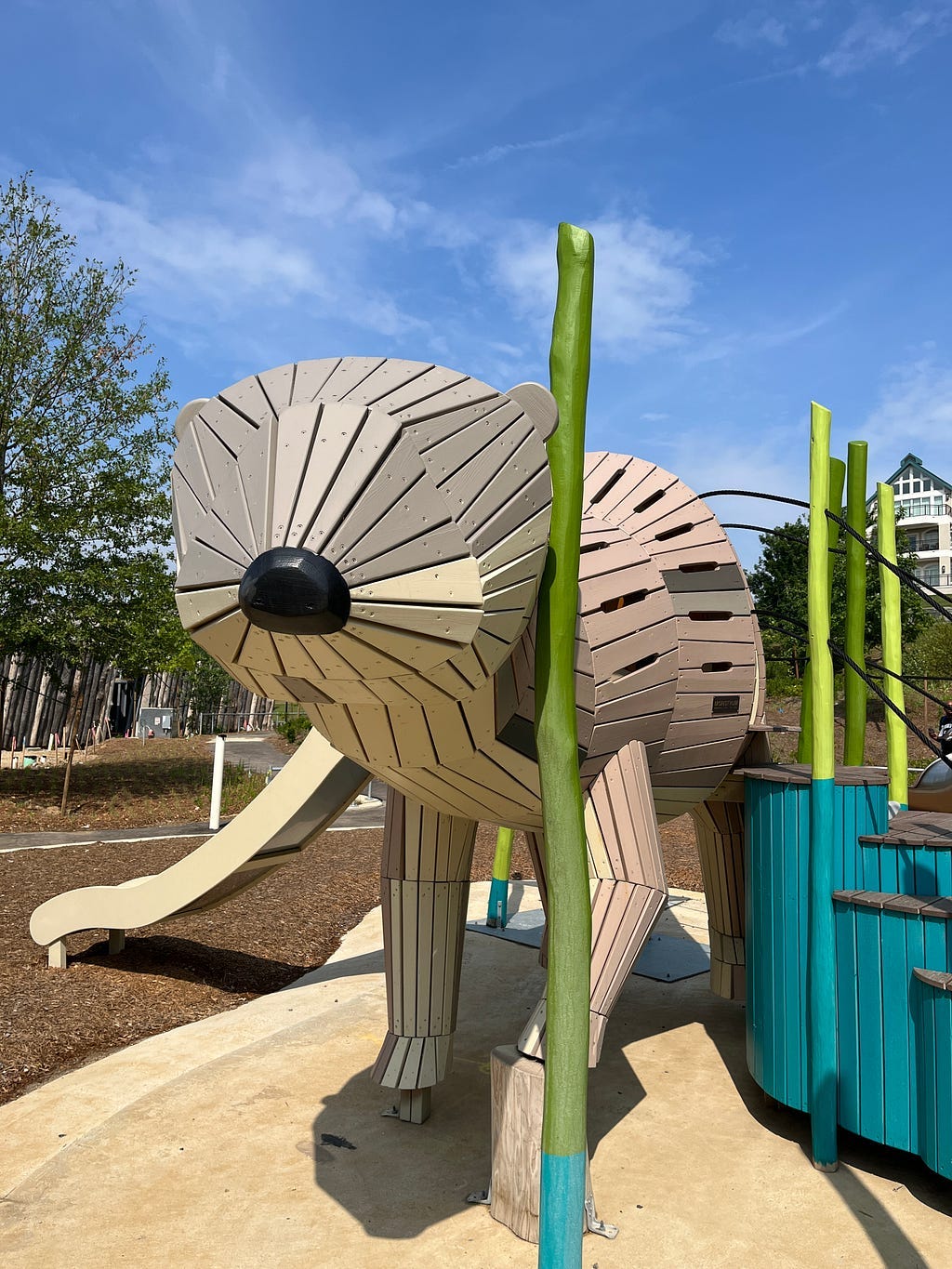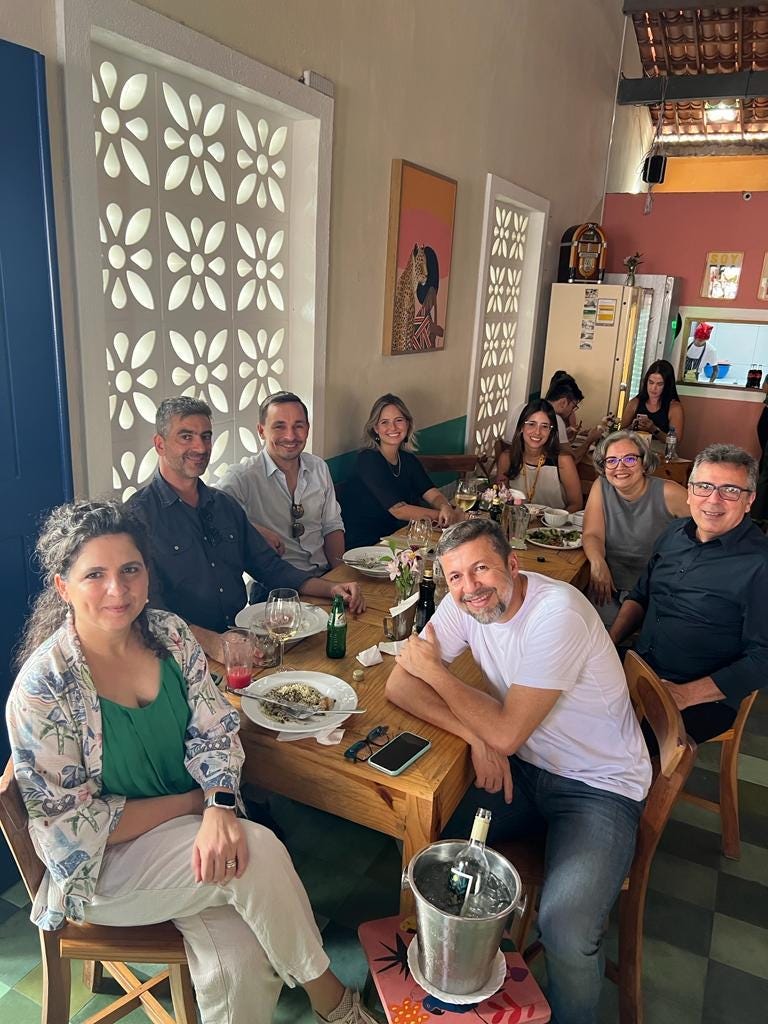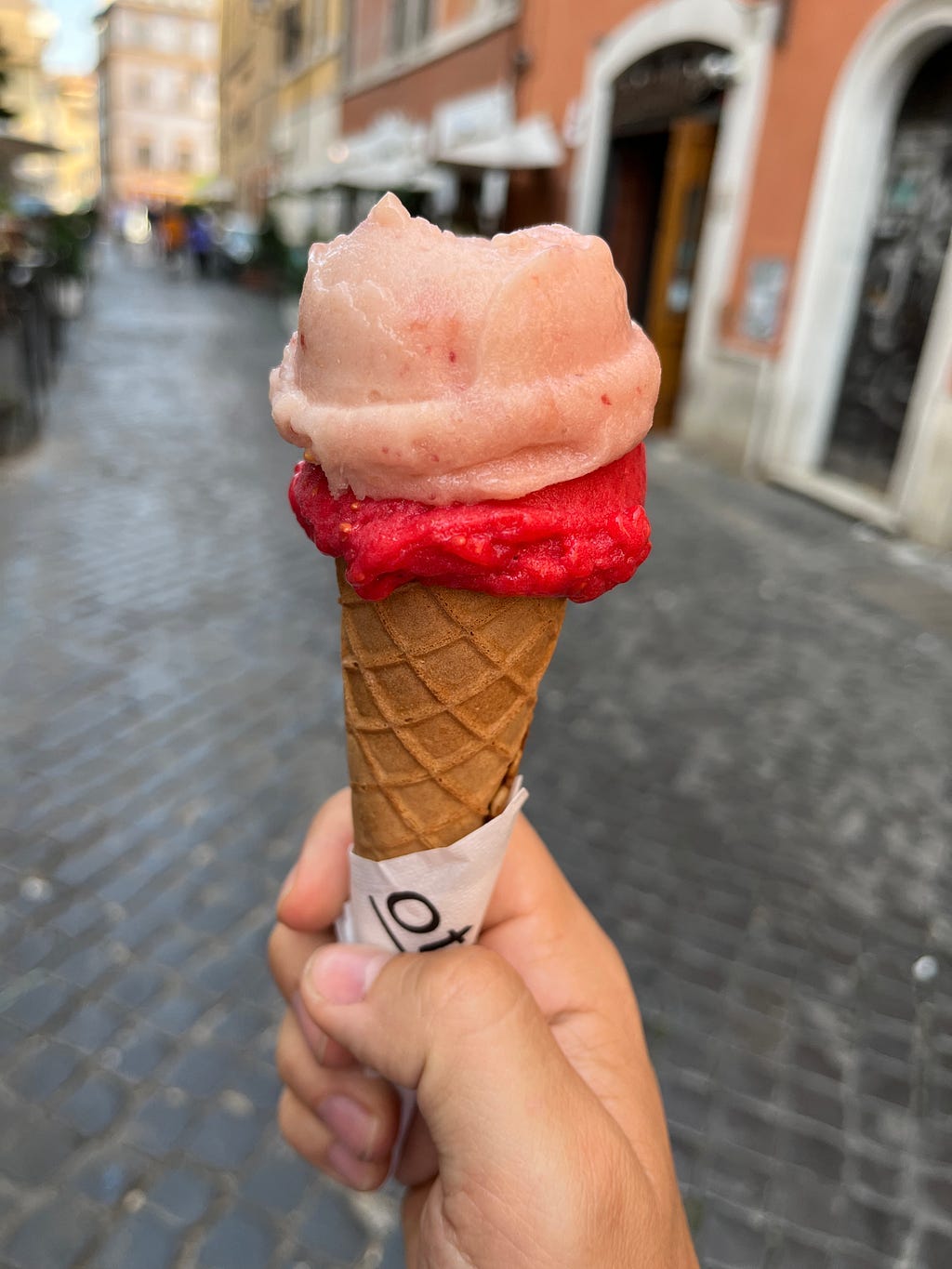46 Things I Learned This Year on Career, Life, Politics, People, and Places
I turn forty-six today. During the last year, I learned at least these 46 things, from great ice cream in Rome to building better parks.
(Note: The people mentioned in the brackets have inspired this learning either through reading their work or in conversation.)
Professional Skills and Career
I know what I want to do in the future. I want to work in or with public institutions, which create spaces for all of us. That means libraries, parks, recreation centers, community centers, museums, cultural spaces, and youth centers. I want to work on the governance, collaboration, and leadership of those institutions, either in a leadership position or as a thought partner.
2. I decided not to re-apply for my civil servant role working for the City of Helsinki. This means that we are planning to stay in the United States after the fellowship concludes in January. Letting go of an institutional role and not knowing what happens in six months is both freaking scary and extremely empowering.
3. My research has focused on ways new things and ideas emerge and how we can work together across differences. Expressions like ‘care’, ‘smarter’, or ‘the right thing to do’ are alternative and often effective ways to motivate people to innovate as that language taps into people’s need to do meaningful work. These function especially well for people in the public sector and for people in the care and supervision professions.
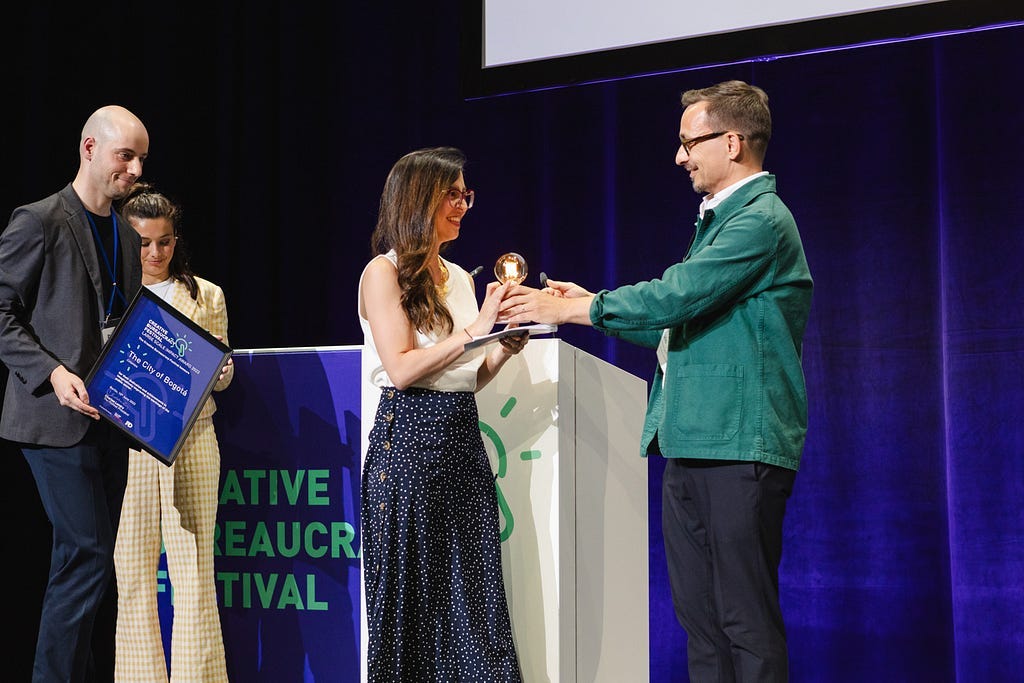
4. The innovation field still suffers from a superhero narrative — one that I have also benefited from. It is the narrative of a bold, extraordinary (mostly white and male) individual coming from the outside, breaking rules (and relationships), and saving a sinking ship called government. That is not how I work but it is the narrative often forced on change. That might build individual careers and make great stories in the media but has a risk of decreasing trust in the government and morale within the government. Looking at the work of many of my colleagues and the civil servants I have met, I have come to conclude that the most important characteristics of a public sector innovator are methodological discipline, curiosity, humility, and the ability to execute. (colleagues at Bloomberg Center for Public Innovation)
5. I have done tons of interviews with fundraisers. Successful fundraising builds on recognizing that we have two ears and one mouth for a reason. Success relies on:
- doing your homework on the potential donor
- understanding their reason to give
- using their first idea as an indication of the themes they are interested in but not taking a strong stand on it
- providing information and/or taking them on tour to meet people and see places
- constantly emphasizing that they have the final say on what and whether they donate or not
As a recipient, you also have the right to say yes or no until the very end. All money is not worth taking. (research interviews with US fundraisers)
6. I am taking steps into the world of academic writing and am about to publish a set of case studies. The more I do this, the more I admire researchers. Writing thoughtfully is hard work. Writing down your worldview is a brilliant exercise when forming an argument or thinking about the next steps. (Pia Bäcklund)
7. Having worked now for 1.5 years in the US, I am learning more every day about how race plays out in society. It plays out in small and big things, in structures and interactions. To meet professional standards in the US, you need to commit to a never-ending learning journey on race. It is also clear that it is not the responsibility of minorities to educate majorities. It is a sign of professionalism and the responsibility of institutions and privileged individuals to do their homework and be open to corrective feedback.
8. If we want people to trust science and government, we could start by not using ‘academic’, ‘institution’ and ‘bureaucracy’ as descriptions of something outdated, out of touch, or slow. (Leigh Graham, Charles Landry)
Life Hacks
9. I have never been a great sleeper. Intense travel and aging do not help. The hardest thing about sleeping is that you fall asleep faster if you don’t build expectations for sleeping. Twelve-hour brown noise recordings on Spotify can help when your mind is spiraling. Having a notebook close by to write down all your worries might help. Melatonin helps. Reading helps, even in the middle of the night. And sometimes you just need to accept that this is not a great night.
10. I have had hundreds of meetings this year. Calendly is the best tool I have found for scheduling meetings. It saves everyone’s time and adapts astoundingly well to people working in multiple time zones.
11. You should not put sparkling water in a water bottle. It might cause the cork to shoot right into your face when you open it. It hurts.
12. It is possible to do a two-week work trip with carry-on luggage. Using mesh packing cubes for your suitcase is awesome. They allow quick packing and unpacking and keep things in order.
13. Doing any sort of research or documenting your inspirations is easier when you have a reference management system. Sciwheel is great as you can highlight text from an article, and it goes straight into your system. The plug-ins to Word and Google Docs create a bibliography automatically. (Leigh Graham)
14. Outlook allows you to have up to three time zones visible on your calendar. It saves a lot of brainpower.
15. World of Mouth is a fantastic app. It fulfills the need to find good restaurants in a new city by limiting the selection to well-curated options. (Saku Tuominen)
16. Shoes. I am too lazy for white sneakers. I don’t get how people do it. Birkenstocks and Ons, however, are worth the hype if you love walking.
17. I thought that I was losing my eyesight in the dark with contact lenses. But thanks to a brilliant optometrist, I discovered that your contact lenses can form what is called a blended vision where one eye is for seeing far and one is “overcorrected” for reading. Fantastic.
18. You can replace a physical business card with a QR code on your phone. QR Me is an easy app. (Terrance Smith)
Politics
19. To do successful sustainability politics, we need governance innovations in how to represent the interests of the world of nature and those of future human generations in decision-making. (BMW Foundation’s RISE Program)
20. Our biggest resilience challenge is accepting that we work in a broken world and remaining optimistic. (Les Back, Shamser Sinha, Ville-Juhani Sutinen)
21. Richard Reeves is one of my favorite US intellectuals. His texts — like this on race in America and why many black men wear glasses — combine both personal humility and research rigor.
22. My research is on parks and libraries. I am witnessing that especially after the pandemic utilized these spaces as crisis centers, there is a risk that we reduce civic spaces, like parks and libraries, to functional service points. Doing that might win momentary political support — even funding — but it will jeopardize public support. People come to these spaces not only to be helped but also to just be, to hang, to co-exist, and to be elevated. We should talk more about awe, beauty, and wonder as important features of civic spaces. (Carol Coletta, Brian Collier, Catherine Horne)
23. This era has an exaggerated emphasis on ‘new’. Especially in politics, we need to put more focus on the value of predictability. As Jonathan Wolff and Avner de-Shalit write in their book Disadvantage, capabilities need to be provided to people in a way that they can rely on them when planning their lives. Therefore, we need to rehabilitate words such as ‘bureaucrat’ and ‘institution’.
24. A bit of messiness and improvisation in unpredictable situations is part of the reality of public spaces. When you collaborate with other people, the need to mediate and recalibrate your approach is often a sign of equity. It means you have diversity in your group. Therefore, every public space provider needs a conflict resolution plan before they are in the middle of conflict. It does not need to be complicated. NeighborSpace in Chicago has a splendid example of a simple process. (Ben Helphand)
25. Equity and intellectual freedom are mutually reinforcing if you are ambitious in both. The great balancing act for leaders of knowledge institutions today is amplifying equity-deserving voices while responding to coordinated attacks, defending the right to present ideas you don’t personally like — and keeping your job. A lot of organizations could learn from Toronto Public Library on this front. (Vickery Bowles, Lisa Radha Vohra)
People
26. Most conflicts come down to a lack of recognition, the feeling that I was not invited, seen, understood, or respected. When convening potentially conflicting groups of people, it is wise to first create and hold a space of learning and recognition before moving to solutions. Having a clear understanding of shared and divided issues allows joint problem-solving. To build trust in the process, you need to exercise rigor in documenting the learning. (John Forester, Miriam Attias, Panu Artemjeff)
27. When you ask people for help, try to be specific. Make it easy for them to help you. When asking people to introduce you to someone, ask if you could write a paragraph on you and what you are interested in. (Adam Grant)
28. I thought the first season of Hulu’s The Bear was the best television has to offer. The second season blows your mind. Season 2 Episode 6 is probably the most amazing episode of television I have ever seen on the wonders and horrors of family.
29. Being hospitable is easier than accepting hospitality.
30. My favorite word right now is convivência, the Portuguese word for that good time at a public square, dance floor, or dinner table, which relies on people’s willingness and skill to co-exist and share space and assets but recognizes friction as a natural state of affairs. My professional focus is on operationalizing convivência, i.e. making it a practical tool for park and library leadership and staff.
31. I have taken part in many great and many not-that-great roundtables and panel discussions. What I have come to conclude is that the role of a host is to be the audience’s advocate on stage, which is why the best panel discussions are not led by the best experts on the issue. A good question is an open question, not a way to seek validation of one’s own views. A good roundtable stays away from expressions like “I think we all agree that”.
32. I have revised my story of Finland a lot. Living abroad has made me love many aspects of Finland but also made more critical towards how we talk about ourselves. No one, especially people struggling in a broken and unequal society with inadequate resources, wants to hear you brag about your wealth, ease and happiness. The story is more interesting if your narrative includes the problem, the enabling conditions, the challenges in getting there, and the solution. In the case of Finland, it means that my story includes baby boxes, nature, country houses, libraries, free-of-charge education, and affordable housing but also the civil war, homogeneity, the decades of Finlandization, and the rising xenophobia.
33. Joint life situations, like moving to a new country or learning a new job at the same time, can spark a friendship. (Terrance Smith, David Michon)
34. You should always send a thank you card after a visit to someone’s home. A card, not only a text message. I don’t have a 100% success rate in living up to this standard.
35. Especially in Europe, we need to adapt our national narratives of identity and belonging from stories of shared heritage and exceptionalism to stories of connection, inspiration, and aspiration. Art played a massive role in 19th-century storytelling, it should play an equal role in the 21st century.
36. Ask a lot of questions. Surround yourself with people who ask a lot of questions.
37. I have hosted teenagers in America over the last years. You should not pester teenagers with questions about what they want, especially if you are asking them to choose from options that they are not familiar with. Easier said than done.
Places
38. In Brazilian Portuguese, the letter ‘r’ in the beginning of a word is pronounced as something closer to an ‘h’. Like the name ‘Rodrigo’ is pronounced as ‘Hodrigo” and Rio is pronounced along the lines of ‘hee-ew’. (Rodrigo Bonet)
39. I have seen more of America during the last year, including two trips to Tennessee and a trip to North Carolina. With the risk of alienating my Texan family, my favorite American barbeque in a prioritized order are Tennessee, Carolina, and Texas barbeque. I lean more towards a dry barbeque than a very saucy one.
40. I have seen a lot of great, many good, and a lot of tired libraries. I have come to conclude that a good library is like a three-legged stool. It has services meeting the needs of the community it serves. It is a place and has a sense of ‘thereness’. It has content in the forms of collections, art, and programming, which elevate, educate, and console. Every library needs to figure out what those legs mean in their specific community. If one of the legs is missing, it is not a library anymore. The mission of a great library is to support people’s sense of self and their capabilities for co-existence.
41. The coolest playground in America will be in Tom Lee Park in Memphis, which opens on Labor Day. The playground, designed by Danish Monstrum, is imaginative with an element of danger.
42. My husband started a job in Los Angeles so we have been spending time there. According to the 2023 Homeless Count by the Los Angeles Homeless Services Authority, approximately 121 778 people in the Los Angeles region suffer from homelessness on any given night. The latest figures demonstrate a 10 percent rise from the last count. Roadsides are filled with tents and RVs. Sidewalks in many places, especially close to the sea, are blocked by encampments. It is a humanitarian crisis. It is extremely difficult not to numb yourself to the visible inequality in American cities. We’ve had Finns visiting us here in the US. The poor state of American infrastructure and the level of visible inequality is shocking for many Europeans visiting the country beyond New York for the first time.
43. I visited Brazil for the first time. Just based on one visit, there are at least four wonderful things in the Brazilian culture I want to learn more about: openness to big ideas, orientation toward the future, the commitment to always finding a way, and açai. I am looking forward to extending that list. (research visit to Fortaleza)
44. Americans make the best of salads and the worst of salads. It is either fresh and imaginative or soaked in some mayonnaise-based creamy goo.
45. When in Rome, you need to go to otaleg in Trastevere and try their flat peach gelato. (Marco Steinberg)
46. I think I have been integrated into America. Country music is the ultimate music when driving. Just listen to Sturgill Simpson’s I Don’t Mind.





